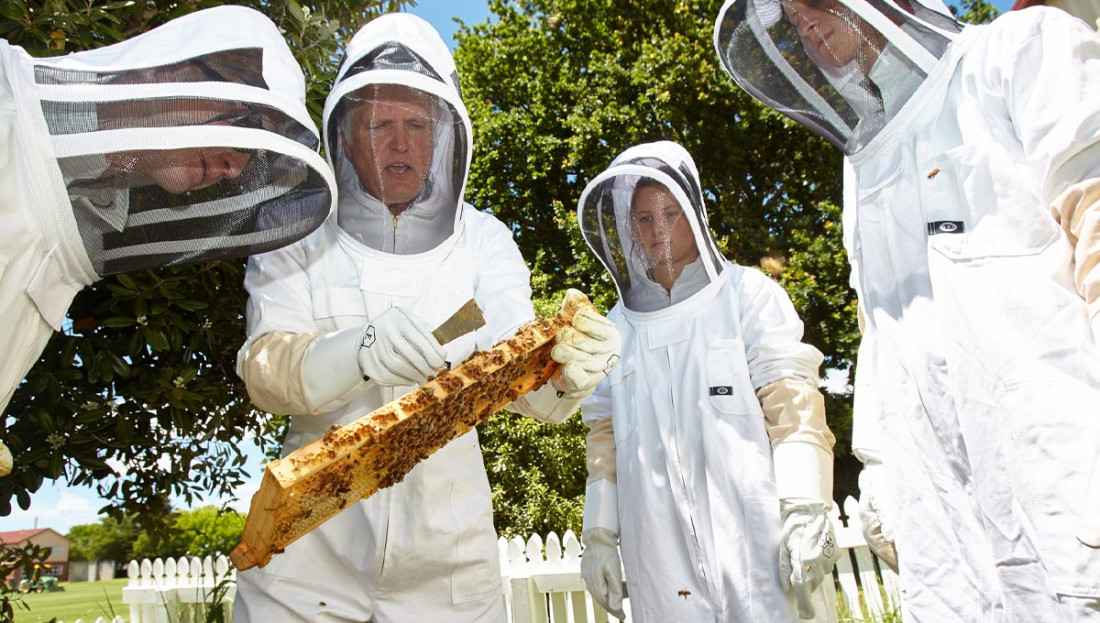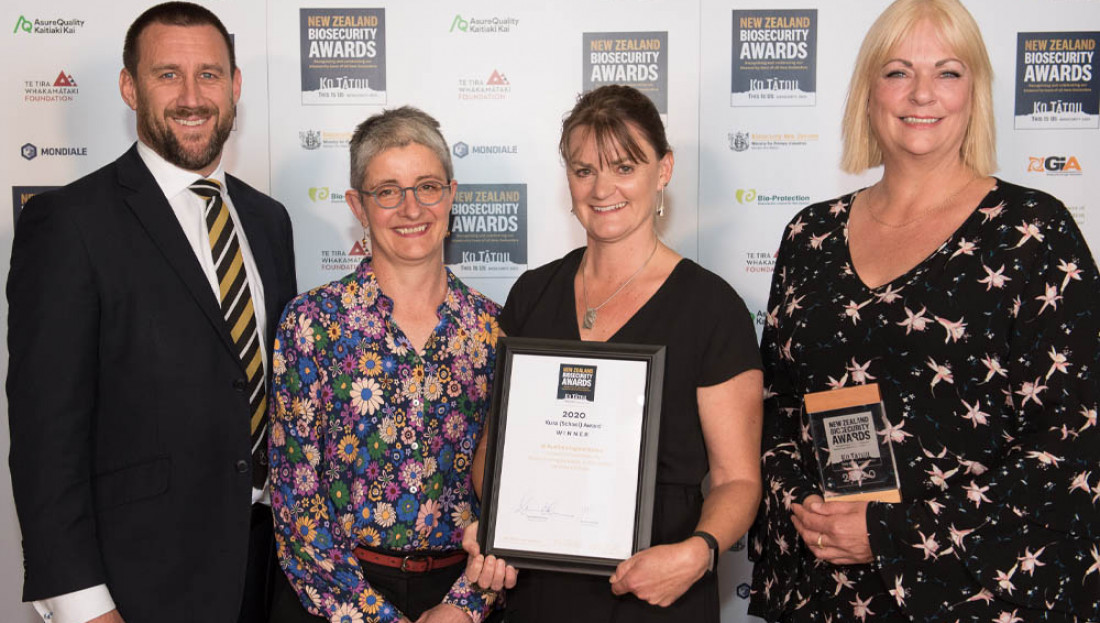St Paul's Collegiate School - 2020 New Zealand Biosecurity Award (Kura) winners
Date
30 October 2020
The agribusiness programme encourages students to look at issues facing the primary sector, including biosecurity, where they gain a good understanding of topics such as Mycoplasma bovis or the Queensland fruit fly.
Using the biosecurity context, they’ve written a suite of schemes and resources for one of the new agribusiness achievement standards at NCEA Level 3 – future proofing strategies. St Paul’s Collegiate School has made this available to all New Zealand secondary schools.
These resources allow students to learn about the potential impacts biosecurity may have on the primary industries and why all New Zealanders need to ensure our country is kept safe from pests and diseases, and to use innovative ideas to provide future-proofing strategies for the industry.
We asked the school to share their experience so other schools could learn about how they too can become biosecurity champions.
What motivated you to start this project? There was an obvious need for secondary school students to have an understanding of biosecurity concepts and so our school attempted to meet that need. We wrote units of work that were topical and related back to the industry that was being investigated, such as Mycoplasma bovis and the Brown Mamorated Stink Bug.
What was the biggest challenge in getting the project underway? Deciding on the topics that would be written as units of work. The students were interested in many topics and sectors so it was trying to narrow the first work down to something that was manageable. Now that the Agribusiness programmer has the first units of work written, teachers are now able to adapt, change the context to one that is appropriate to their students needs and the sectors in their area.
Who were your best allies and supporters along the way? The Agribusiness subject has been supported by many primary sector businesses. St Paul’s along with business partners, DairyNZ, Beef+Lamb NZ, AGMARDT, Meat Industries Association, Gallagher, Rabobank and Fairview Motors have made the agribusiness programme available to secondary schools within NZ, Other sector partners including BNZ, Zoetis, NZ National Fieldays, Greenlea, Waikato Milking Systems Waitomo Petroleum, AGrowQuip, Campbell Tyson and TetraPak were involved in the development of the agribusiness national curriculum.
How did you get others to support you? There was a real need for units of work to be developed that were relevant to the primary sector and what they would like students to have an understanding of. So, once the businesses were approached, they were very happy to help out with concepts, ideas and resources to get the unit of works written.
What else kept you going to succeed? It is an important issue that our young people need to know about, so by being able to integrate it into the Agribusiness subject was important and a privilege.
What was your most important observation from the project? Seeing all the exciting passion and dedication that the primary sector has to ensure that this industry can continue through implementing biosecurity practices.
What else do you think would be useful for people to know? That this is an interesting sector to be learning about and there are so many different aspects and contexts to it.
How did you go about sourcing funding and other resources you needed? The Agribusiness subject has been supported by many primary sector businesses. St Paul’s along with business partners, DairyNZ, Beef+Lamb NZ, AGMARDT, Meat Industries Association, Gallagher, Rabobank and Fairview Motors have made the agribusiness programme available to secondary schools within NZ, Other sector partners including BNZ, Zoetis, NZ National Fieldays, Greenlea, Waikato Milking Systems Waitomo Petroleum, AGrowQuip, Campbell Tyson and TetraPak were involved in the development of the agribusiness national curriculum.
Would you be happy for people to contact you for advice and support for their programmes? Definitely happy to be contacted.
Have you set up a biosecurity action in your school? Find out about entering your programme in the next NZ Biosecurity Awards. (link to awards section of website)


